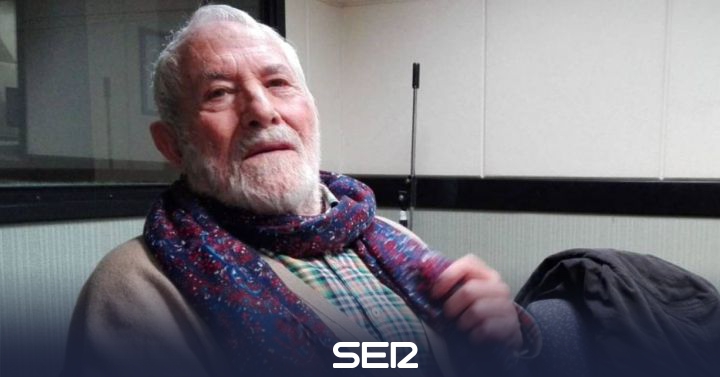–
Since the controversial ‘surrender law’ was introduced in 2011, 1,368 people and legal entities have been given the opportunity to commute their prosecution. This mainly happened in fraud cases. They paid nearly $1 billion to the state to avoid being convicted.
–
The curtain fell this week on the most infamous fraud case in our country, involving the West Flemish business family De Clerck of Beaulieu International Group (BIG). After 31 years, the case ends with an ‘extended amicable settlement’. The last suspects signed an agreement with the public prosecutor’s office in Brussels: together they pay almost 50 million euros and in exchange no longer have to appear before the criminal court.
–
Known settlements
- Already in 2013 had to cycling champion Tom Boonen conclude an amicable settlement with the Kortrijk public prosecutor’s office for more than 2 million euros. Boonen feigned living in Monaco to keep multi-million dollar income from sponsorship deals and other ancillary income tax-free. Also foreman Patrick Lefevere arranged a tax arrangement in Luxembourg in 2017. Other well-known Flemish people who agreed with the court were star chef Peter Goossens (Court of Cleve) in 2015 and festival organizer Herman Schueremans (Rock Werchter) in 2017.
- Several entrepreneurial families had to buy off tax fraud cases with an extended amicable settlement. In 2015 the sloot closed East Flemish family Santens from the well-known bath linen manufacturer a deal for years to hide income via Luxembourg, Switzerland and the British Virgin Islands. The family english of the windows and doors company of the same name concluded a settlement of about 6 million euros last year in a money laundering case about black money from Switzerland. Another well-known settlement was the one in 2015 with the ‘Emperor of the Signpost’ Glenn Janssens (Trafiroad) about a fraud and corruption case.
- The largest amicable settlement ever in our country was concluded in 2019 by the Brussels public prosecutor’s office HSBC for about 300 million euros. Leaked bank account files showed that some 2,450 Belgians had been hiding dirty money for years at HSBC Private Bank in Geneva. The Antwerp public prosecutor’s office concluded the second largest settlement of 160 million euros in 2013 over a large-scale tax fraud involving the diamond company. Omega Diamonds.
- Other well-known companies that were allowed to buy off their prosecution over the years were SSociété Générale, PwC, ABN AMRO, Petercam en Accent Jobs. Around the latter, a deal of more than 20 million euros was concluded in 2017 with the Ghent public prosecutor for a tax construction in Luxembourg that was leaked through the journalistic project LuxLeaks.
- One of the richest people in the world, the Frascal billionaire Bernard Arnault of the luxury group LVMH, with brands such as Louis Vuitton, Christian Dior and Moët & Chandon, reached a settlement in 2017 with the Brussels public prosecutor’s office in a case of domicile fraud. Arnault gave up an apartment in Uccle as his official residence to claim Belgian nationality.
–
–
The law on the extended out-of-court settlement, also known as the ‘surrender law’, has been in existence since 2011. It made it possible to commute a prosecution at any time, including for more serious crimes and if a judicial investigation or trial has already started. Until then, amicable settlements in criminal cases – since 1984 – were only possible for smaller files. Critics warned that the commutation law would lead to class justice: those who have money can commute their prosecution and keep a clean criminal record, even in large files. Since 12 May 2018, there has been stricter control by the judges on the settlements that the public prosecutors conclude.
–
How many deals have prosecutors made since the commutation law came into effect? De Tijd was able to obtain the most recent figures and amounts. They were requested from the Minister of Justice by N-VA Member of Parliament Sophie De Wit.
–
tax authorities
Since 2011, 1,368 people or legal entities, such as companies, have been given the option to commute their prosecution through an extended out-of-court settlement. In 1,266 cases, the sums of money were effectively paid and no conviction was to be feared. Last year, 117 suspects were given the opportunity to reach an extended amicable settlement, more than the 80 cases in 2019.
–
In total, more than 955 million euros was paid to the state for those settlements. Almost half has been paid to the court (446 million euros). The rest went to the tax authorities (401 million euros), which must also be compensated in tax fraud cases. EUR 86 million has also been repaid from the ‘capital gain’ resulting from the crimes. And almost 20 million euros flowed to other injured parties and 720,000 euros to the RSZ.
–
Over the years, the amounts fluctuated sharply due to some very large items that were bought off. In 2019, for example, no less than 325 million euros were paid because a record amount of around 300 million euros was paid by the bank HSBC to the public prosecutor’s office in Brussels. More settlements were concluded last year, but ‘only’ 28 million euros were paid.
–
In Flanders, accounting for 684 of the 1,368 settlements that have been proposed since 2011, you clearly stand a better chance of being allowed to commute a prosecution. 442 settlements took place in Wallonia, 223 in Brussels and the remaining 19 were closed by the federal prosecutor’s office.
–
Powerful weapon
No details are given about the cases in which it is appropriate, but it mainly concerns tax, economic or financial crimes. The Brussels Attorney General Johan Delmulle calls the system a ‘powerful weapon’ in the fight against financial crime, which actually removes the feeling of impunity. ‘Society has every interest in a justice system that works purposefully.’
–
This system is a powerful weapon in the fight against financial crime, which actually removes the feeling of impunity.


